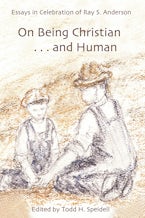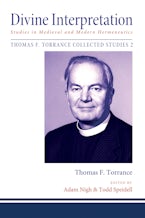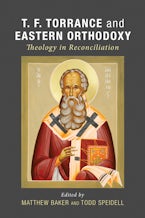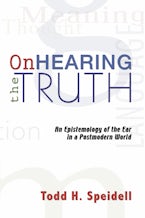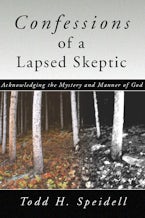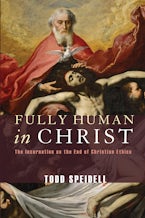On Being Christian and Human
Essays in Celebration of Ray S. Anderson
Edited by Todd Speidell
Imprint: Wipf and Stock
286 Pages, 6.00 x 9.00 x 0.57 in
- Paperback
- 9781579109363
- Published: April 2002
$33.00 / £29.00 / AU$44.00
BuyOther Retailers:
In the tradition of Karl Barth, T. F. and J. B. Torrance, and Ray Anderson, this collection of essays articulates a theology of ministry based on the humanity of Christ. A Christian theology of ministry, it insists, can be nothing less than a theology for humanity.
Todd H. Speidell, Ph.D., teaches religion and philosophy courses at Webb School of Knoxville, and he is the author of Confessions of a Lapsed Skeptic: Acknowledging the Mystery and Manner of God (Wipf and Stock, 1999).
"The father pulled the hand of the boy and plunged it into the overturned earth. 'Son, this soil is part of your life,' he spoke with quiet certainty; 'you take care of it, and it will take care of you.' . . . The farm boy who believed his hand was rooted in the soil of South Dakota found a destiny where his heart for God is bound to his hand in the soil of many lives."
From the Introduction
"The New Testament seems to have very little concern about the abstract issue of the humanity of Jesus Christ, which occupies volumes and volumes of theological reflection. Jesus wasn't human simply by laying aside a clerical collar and having a night out with the boys. You didn't discover his humanity in the playground; you found his humanity out in the streets where it counted. There are some people, and you hear them talk, 'You want to see how human our pastor is, you get him into a game of touch football. He's really human after all.' That doesn't count. Being Christian is being human when it really counts."
Ray S. Anderson, On Being Christian
"Pondering the significance of Karl Barth's remark that 'theology has become anthropology since God became man,' I began to see theological anthropology as the heart of the course of theological study.
The Westminster Catechism teaches that 'the chief end of man is to glorify God and to enjoy him forever.' One might go on to ask what is the chief end of God? What center could one find to the entire range of theology other than God's intention to create the human person as the crowning act of his creation and as the consummate act of his own ministry of reconciliation through the incarnation, resurrection, and glorification of the man Jesus Christ? It would be presumptuous to claim this, except for the insistence of God himself that this is precisely his purpose. Theological anthropology, therefore, must never settle for less, but it must never forget that its only basis for this claim is the crucified, risen, and glorified humanity of Christ."
Ray S. Anderson, On Being Human

